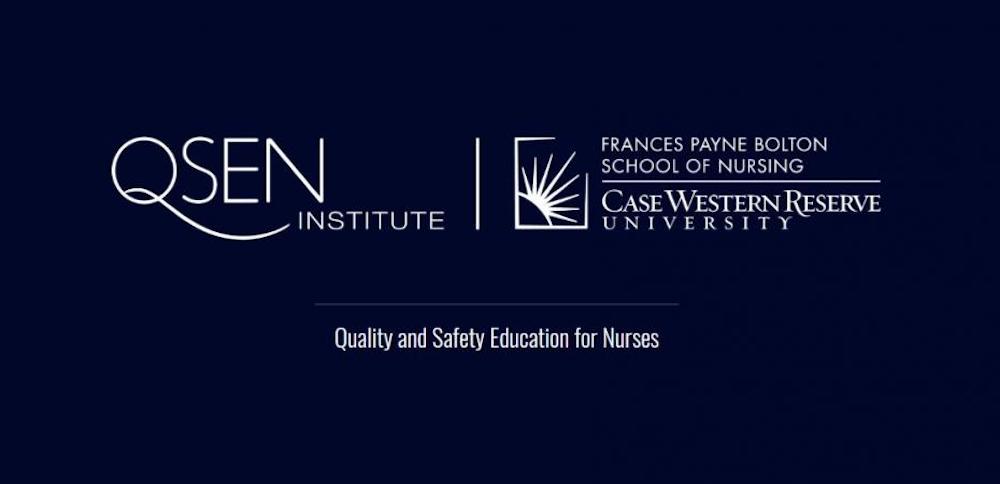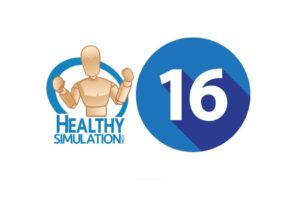QSEN Competencies Push for Improved Nursing Learner Outcomes
The Quality and Safety Education for Nurses (QSEN) project was designed to address the challenge of preparing future nurses with the knowledge, skills, and attitudes (KSAs) necessary to continuously improve the quality and safety of the healthcare systems within which they work. In helping to serve the community of nursing learners, professionals, and educators, QSEN has compiled a number of helpful initiatives, such as scenario guidance, course competencies, evaluation tools, and more. Before finalizing a nursing simulation curriculum, or designing a new simulation in nursing program, educators should review the following QSEN resources.
As for guidance on simulation scenarios, QSEN provides links to a variety of scenario-building topics and QSEN strategies. Sample topics include: “Developing a QSEN competency checklist for simulation experiences,” “A template for simulation scenario development that incorporates QSEN competencies,” and “Integration of QSEN competencies when designing simulation scenarios.” There are also simulations created by other nursing educators available on the QSEN website under the “teaching strategies” tab.
As a reference, authors Paula Jarzemksky, MS, RN, Jane McCarthy, MSN, RN, and Nadege Ellis, BSN, RN, submitted their work on the “Integration of QSEN competencies when designing simulation scenarios” to QSEN. Together, they sought to develop learning outcomes for simulation scenarios that exemplify the knowledge, skills and attitudes underlying QSEN competencies. Their other goals were to create an inventory of sample events or triggers that target specific QSEN competencies before, during and after a simulation scenario, and to collaborate with other nursing faculty to design effective simulation scenarios. Read the strategy overview.
Sponsored Content:
QSEN Competencies
Using the Institute of Medicine (2003) competencies for nursing, QSEN faculty and a National Advisory Board have defined quality and safety competencies for nursing and proposed targets for the knowledge, skills, and attitudes to be developed in nursing pre-licensure programs for each competency. QSEN provides definitions as a resource for each, designed to serve as guides to curricular development for formal academic programs, transition to practice and continuing education programs.
The six categories of QSEN competencies include: patient-centered care, teamwork and collaboration, evidence-based practice (EBP), quality improvement (QI), safety, and informatics. Along with a definition for each competency, QSEN lists the knowledge, skills, and attitudes programs should apply to their curriculums to ensure learner proficiency.
For example, patient-centered care is tied to the knowledge-based skill of being able to integrate the understanding of multiple dimensions of patient-centered care. These levels include patient/family/community preferences and values, coordination and integration of care, information, communication and education, physical comfort and emotional support, involvement of family and friends, and transition and continuity.
Sponsored Content:
The skills associated with this knowledge involve the ability to elicit patient values, preferences and expressed needs as part of clinical interview, implementation of care plan and evaluation of care. Learners must also be able to communicate patient values, preferences and expressed needs to other members of the healthcare team. Further, they should provide patient-centered care with sensitivity and respect for the diversity of human experience.
Associated attitudes would then include recognizing the value in seeing health care situations “through patients’ eyes.” The learner must also respect and encourage individual expression of patient values, preferences and expressed needs, while valuing the patient’s expertise with own health and symptoms. They should additionally seek learning opportunities with patients who represent all aspects of human diversity, and recognize personally held attitudes about working with patients from different ethnic, cultural and social backgrounds. Lastly, a willingness to support patient-centered care for individuals and groups whose values differ from their own is integral to reaching total competency. Download the QSEN Competencies table, or check out this QSEN Competencies Example Checklist.
QSEN Trauma Simulation Scenario
Tara Heagele, MSN Ed. RN, PCCN, and Elizabeth Mizerek, MSN, RN, CEN, FN-CSA, EMT-B, QSEN, reported on a scenario they created which focused on QSEN competencies in a mass casualty setting. The scenario was designed for continuing education leaders, new graduates, pre-licensure nursing professionals and those interested in staff development. The scenario was offered five times between February 2012 and September 2012 to final semester ADN nursing students. Pre- and post-conference discussion questions (provided in the materials) resulted in a lengthy discussion about the nurse’s role in a mass casualty incident during the simulation Recurrent themes included motivation to participate in disaster drills and emergency preparedness.
The educator assigned two to four learners to triage 15 patients. Each patient scenario was then discussed with the class and a decision was made about each patient and whether they had been triaged appropriately. Learners then transitioned to a simulated Emergency Department where they assume responsibility for the care of two patients.
During this clinical, learners gained the instruction and knowledge necessary to describe the nurse’s role, how the nurse can protect the safety of themselves and the patients, and the role of the healthcare facility during a disaster. They also were able to successfully triage victims of a mass casualty event, as evidenced by correct triage tag designations. Other learning objectives included: successful performance of a rapid trauma assessment on two victims, apply, administer and perform all necessary nursing interventions to the simulation manikins, and more.
More About QSEN
The QSEN Institute is a collaboration of healthcare professionals focused on education, practice, and scholarship to improve the quality and safety of healthcare systems. The QSEN Institute’s vision is to inspire healthcare professionals to put quality and safety as core values to guide their work. The main QSEN’s website serves as a central repository of information on the core QSEN competencies, KSAs, teaching strategies, and faculty development resources designed to best support this goal.
Learn More About QSEN
Lance Baily, BA, EMT-B, is the Founder & CEO of HealthySimulation.com, which he started while serving as the Director of the Nevada System of Higher Education’s Clinical Simulation Center of Las Vegas back in 2010. Lance is also the Founder and acting Advisor to the Board of SimGHOSTS.org, the world’s only non-profit organization dedicated to supporting professionals operating healthcare simulation technologies. His co-edited Book: “Comprehensive Healthcare Simulation: Operations, Technology, and Innovative Practice” is cited as a key source for professional certification in the industry. Lance’s background also includes serving as a Simulation Technology Specialist for the LA Community College District, EMS fire fighting, Hollywood movie production, rescue diving, and global travel. He and his wife Abigail Baily, PhD live in Las Vegas, Nevada with their two amazing daughters.
Sponsored Content:



















